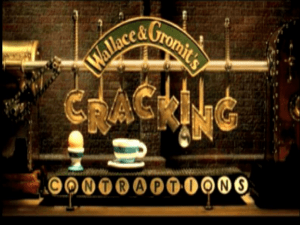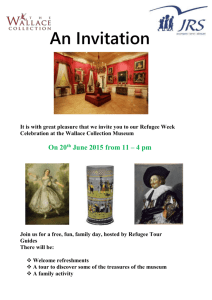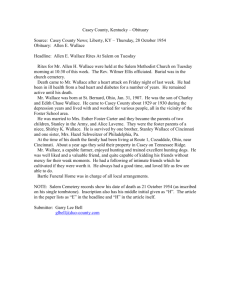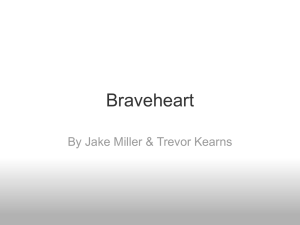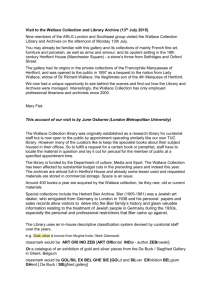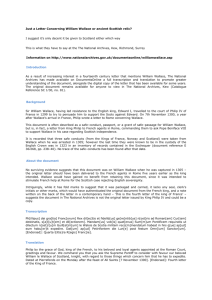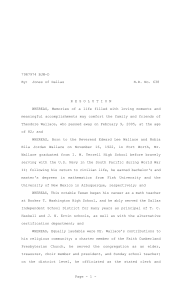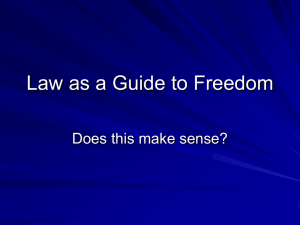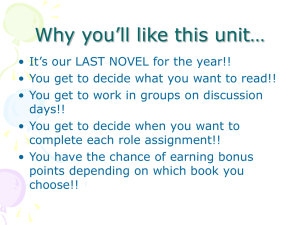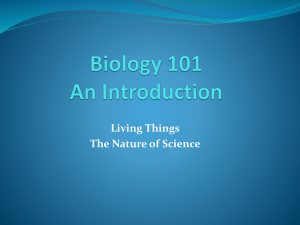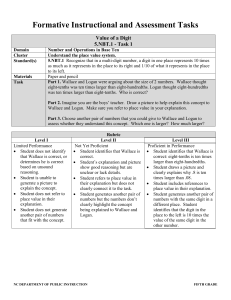Spring 2016 600-Level Courses ENG 631: Reading David Foster
advertisement
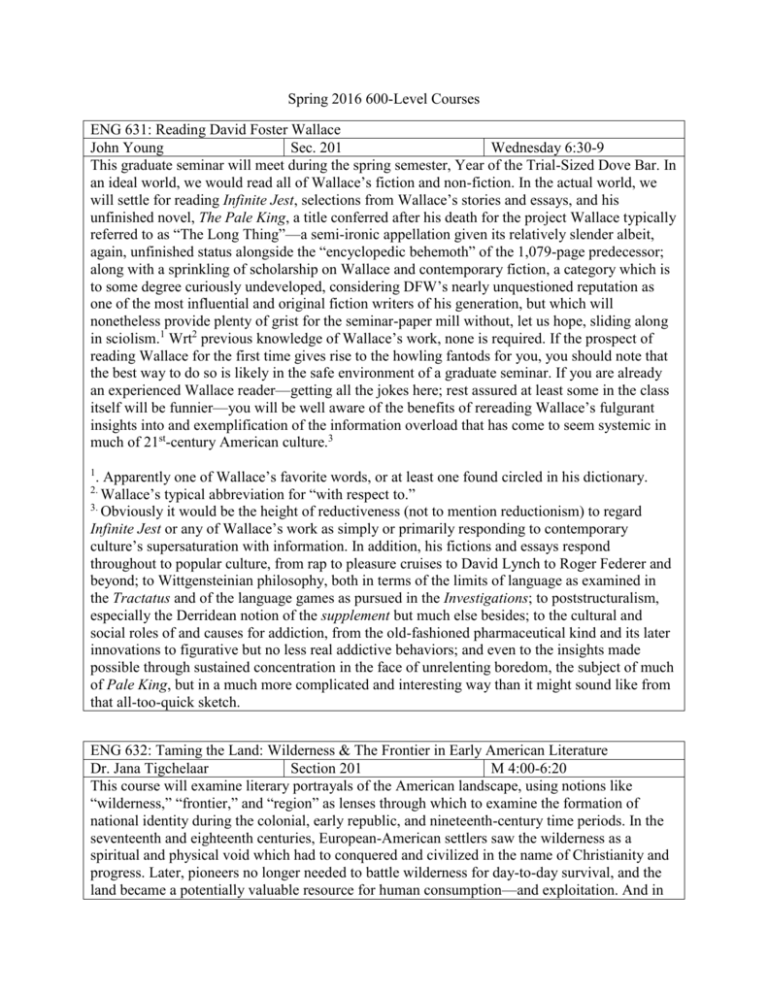
Spring 2016 600-Level Courses ENG 631: Reading David Foster Wallace John Young Sec. 201 Wednesday 6:30-9 This graduate seminar will meet during the spring semester, Year of the Trial-Sized Dove Bar. In an ideal world, we would read all of Wallace’s fiction and non-fiction. In the actual world, we will settle for reading Infinite Jest, selections from Wallace’s stories and essays, and his unfinished novel, The Pale King, a title conferred after his death for the project Wallace typically referred to as “The Long Thing”—a semi-ironic appellation given its relatively slender albeit, again, unfinished status alongside the “encyclopedic behemoth” of the 1,079-page predecessor; along with a sprinkling of scholarship on Wallace and contemporary fiction, a category which is to some degree curiously undeveloped, considering DFW’s nearly unquestioned reputation as one of the most influential and original fiction writers of his generation, but which will nonetheless provide plenty of grist for the seminar-paper mill without, let us hope, sliding along in sciolism.1 Wrt2 previous knowledge of Wallace’s work, none is required. If the prospect of reading Wallace for the first time gives rise to the howling fantods for you, you should note that the best way to do so is likely in the safe environment of a graduate seminar. If you are already an experienced Wallace reader—getting all the jokes here; rest assured at least some in the class itself will be funnier—you will be well aware of the benefits of rereading Wallace’s fulgurant insights into and exemplification of the information overload that has come to seem systemic in much of 21st-century American culture.3 . Apparently one of Wallace’s favorite words, or at least one found circled in his dictionary. Wallace’s typical abbreviation for “with respect to.” 3. Obviously it would be the height of reductiveness (not to mention reductionism) to regard Infinite Jest or any of Wallace’s work as simply or primarily responding to contemporary culture’s supersaturation with information. In addition, his fictions and essays respond throughout to popular culture, from rap to pleasure cruises to David Lynch to Roger Federer and beyond; to Wittgensteinian philosophy, both in terms of the limits of language as examined in the Tractatus and of the language games as pursued in the Investigations; to poststructuralism, especially the Derridean notion of the supplement but much else besides; to the cultural and social roles of and causes for addiction, from the old-fashioned pharmaceutical kind and its later innovations to figurative but no less real addictive behaviors; and even to the insights made possible through sustained concentration in the face of unrelenting boredom, the subject of much of Pale King, but in a much more complicated and interesting way than it might sound like from that all-too-quick sketch. 1 2. ENG 632: Taming the Land: Wilderness & The Frontier in Early American Literature Dr. Jana Tigchelaar Section 201 M 4:00-6:20 This course will examine literary portrayals of the American landscape, using notions like “wilderness,” “frontier,” and “region” as lenses through which to examine the formation of national identity during the colonial, early republic, and nineteenth-century time periods. In the seventeenth and eighteenth centuries, European-American settlers saw the wilderness as a spiritual and physical void which had to conquered and civilized in the name of Christianity and progress. Later, pioneers no longer needed to battle wilderness for day-to-day survival, and the land became a potentially valuable resource for human consumption—and exploitation. And in the nineteenth century, depictions of regional communities worked at times in opposition to dominant national narratives of land use and masculinity. Our emphasis will be on texts portraying or examining wilderness, the frontier, and regionalism, including Mary Rowlandson’s captivity narrative, James Fenimore Cooper’s The Pioneers, Carolyn Kirkland’s A New Home, Who’ll Follow, Henry David Thoreau’s Walden, Maria Amparo Ruiz de Burton’s The Squatter and the Don, and Sarah Orne Jewett’s The Country of the Pointed Firs. We will examine our primary texts through multiple critical lenses, including ecocriticism, postcolonialism, and feminism. We will also briefly survey canonical critical works by Henry Nash Smith, Annette Kolodny, Roderick Nash, Lawrence Buell, and others. English 636: Dante and Medieval Europe Gwenyth Hood T 4:00-6:20 CH 339 This course centers on Dante Alighieri’s famous Divine Comedy, an epic dream-vision in three parts, interpreting the universe--past, present and future--through the perspective of one soul, Dante. As author and protagonist, Dante makes himself an Everyman, yet he is still an individual with particular tastes, quirks and ambitions. Love, however, is his ultimate motivation, and desire for his beloved Beatrice impels him to follow the poet Virgil through Hell and Purgatory, until he again meets Beatrice in the Earthly Paradise. From there, Beatrice guides him through Paradise. John Ciardi’s translation and commentary will be our focal text. Dante’s youthful love poetry, particularly, La Vita Nuova (The New Life) provides further context for his ideas, as do other medieval poems, such as Gottfried of Strasburg’s Tristan and the Middle English dream-vision Pearl. Modern response is provided by C. S. Lewis’s The Great Divorce. Class activities involve discussions and freewrites, two short essays and one longer research paper on a subject of the student’s choice. ENG 640: Composition Pedagogy Dr. Kelli Prejean Section 201 Wednesdays 4-6:20 PR: ENG 560 or permission from instructor This course is for students interested in teaching college composition, or what is commonly referred to as first-year writing. The course will prepare beginning writing teachers for the practical, pedagogical, and rhetorical considerations of teaching academic reading and writing to beginning college students. Students taking this course should expect to both read about and apply best practices to the development of their own teaching materials, and they will become knowledgeable of the practice of teaching by observing experienced instructors as well as participating in various teaching demonstrations during the semester. By the end of the course, students will have accumulated knowledge and resources to put together a comprehensive portfolio that demonstrates readiness for teaching. More specifically, students will learn how to design and scaffold writing assignments, how to respond to student drafts, and how to assess student writing. ENG 660: Literary Theory (“Feminist Film Theory”) Walter Squire Section 201 R 4-6:20 This course will expose students to the history and complexities of Anglo-American feminist film theory over the past four decades. Particularly, the class will focus upon images of women, the gaze, female/lesbian spectatorship, the body, and ethnicity/race. Representative theorists will include Carol J. Clover, Barbara Creed, Teresa De Lauretis, Mary Ann Doane, Molly Haskell, bell hooks, Claire Johnston, Annette Kuhn, Tania Modleski, Laura Mulvey, B. Ruby Rich, and Linda Williams. Students will view documentaries, melodramas, musicals, science fiction, thrillers, and horror films which correspond to theorists’ articles, and some attention will be paid to notable women film directors. The two required textbooks for the class are Feminism and Film, edited by E. Ann Kaplan, and Feminist Film Theory: A Reader, edited by Sue Thornham. Assignments will include viewing responses to assigned films, a class presentation, and a researched analysis of a film which applies or contests a specific feminist theory.
